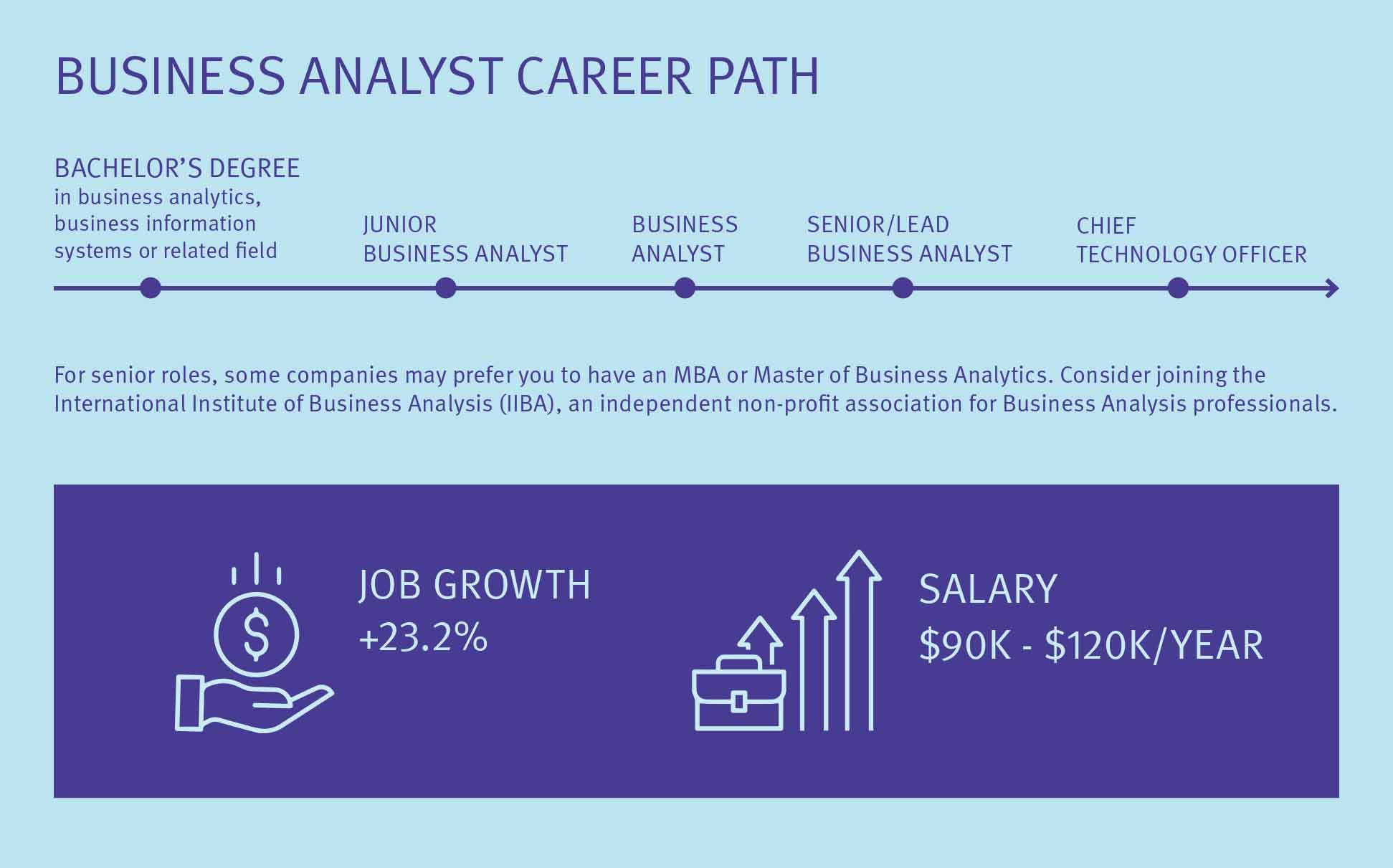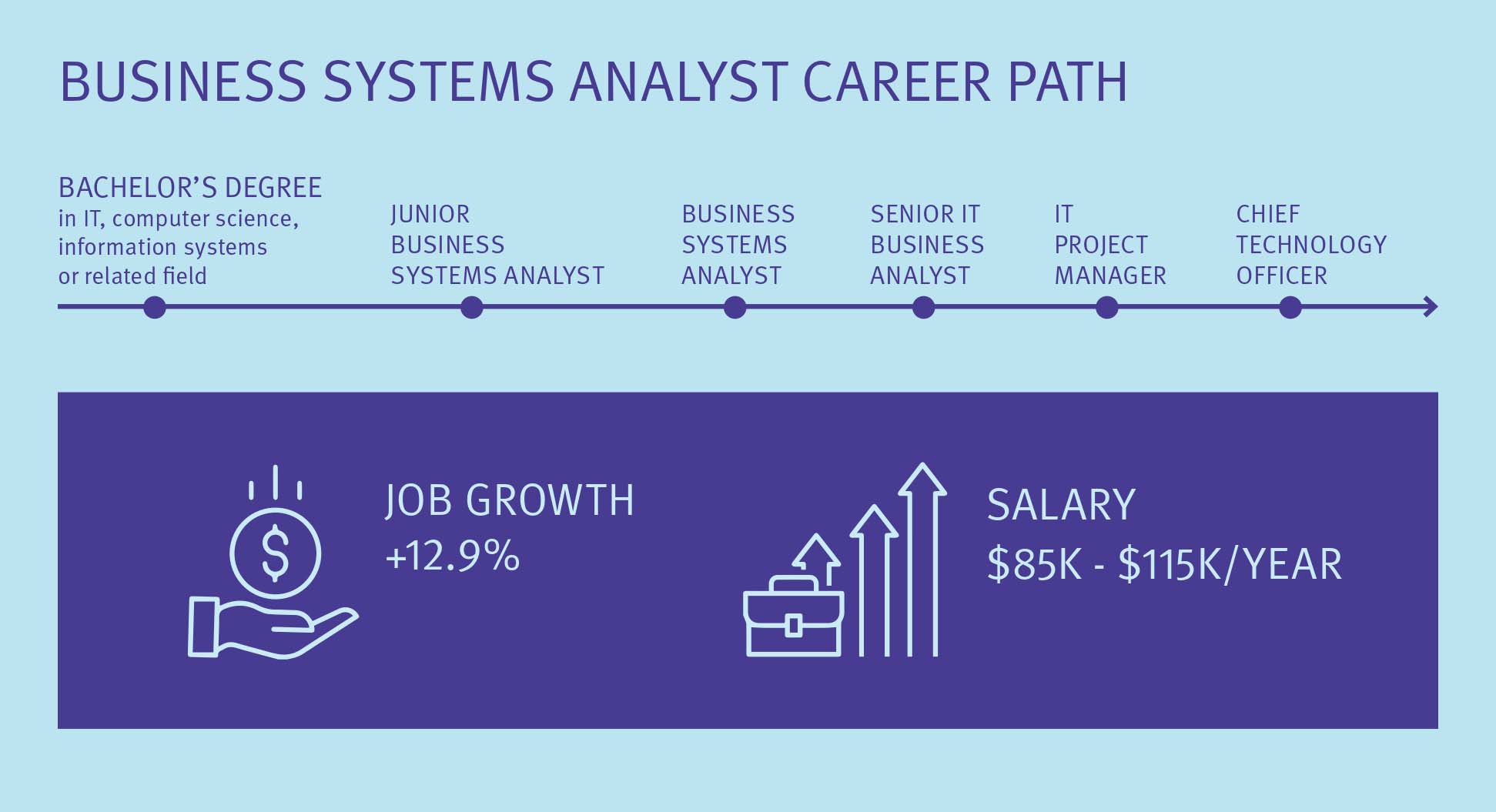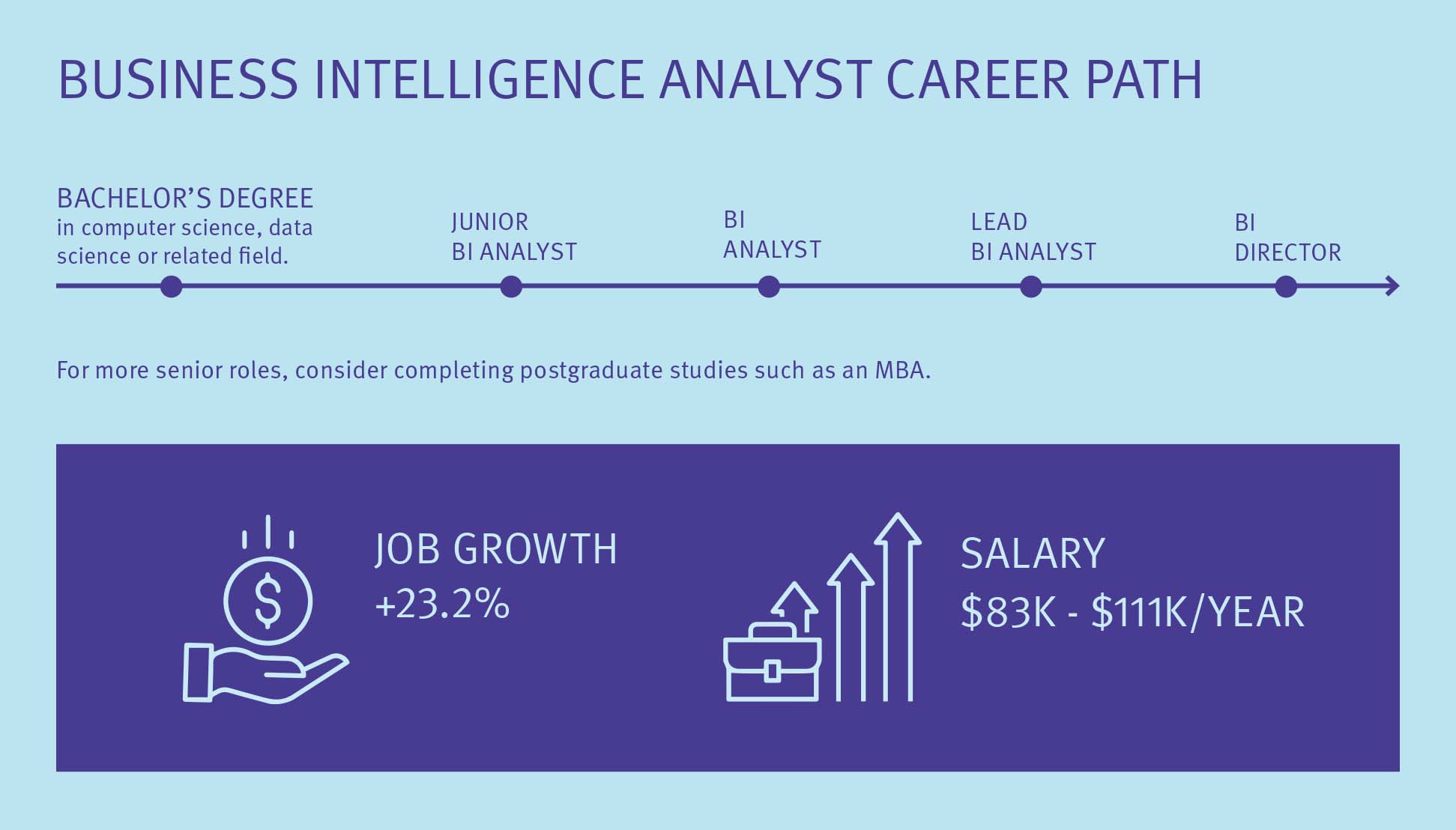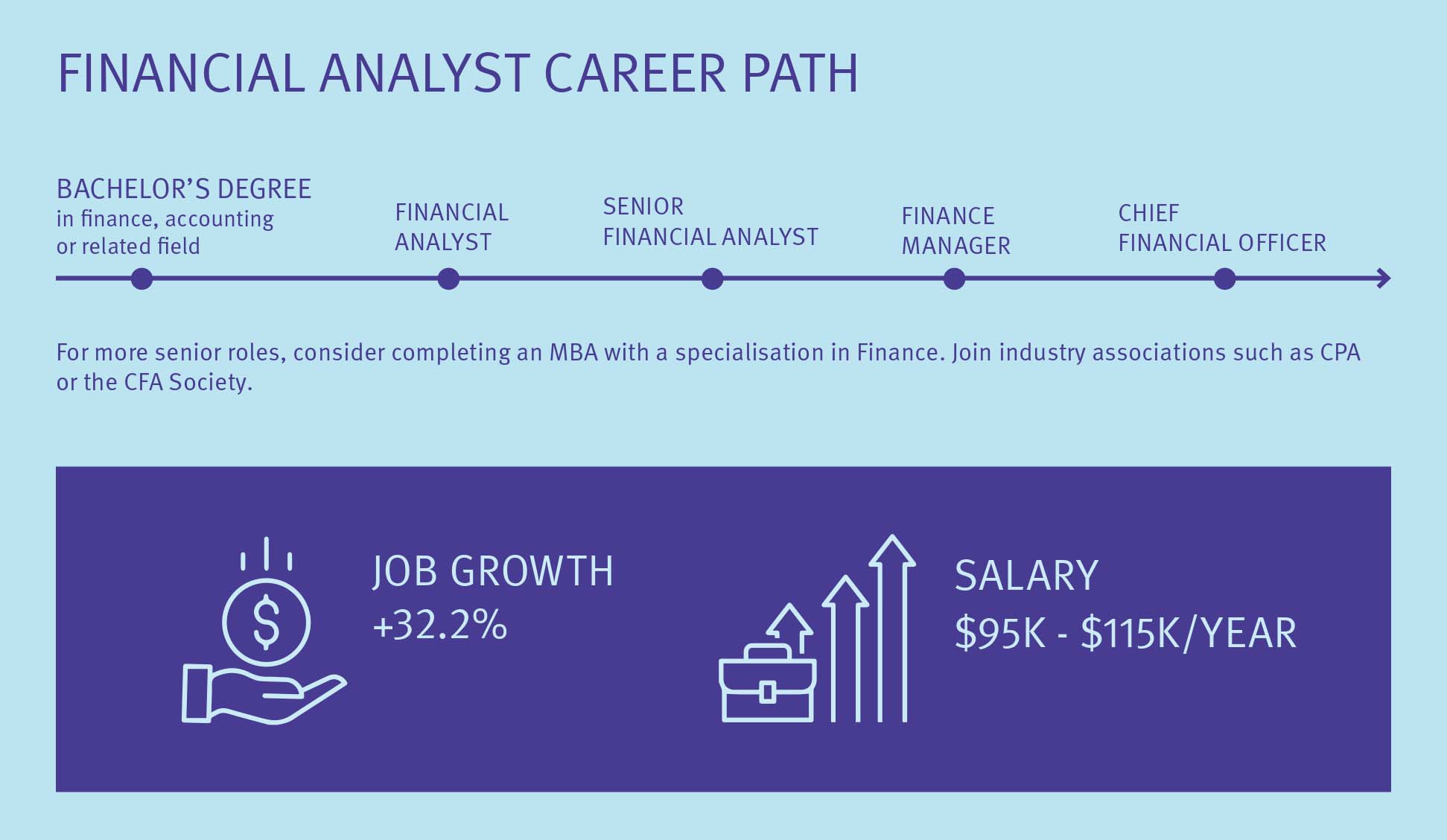The top 5 In-Demand jobs in Business Analytics (Australia 2024)
Data is the new currency of the century.
With the fast adoption of digital technology, businesses and governments now have access to vast amounts of data. By 2025, more than 150 zettabytes of big data will need analysis and the annual revenue of the global big data analytics market is predicted to reach $68.09 billion and the number of jobs in Business Analytics will continue to rise.
Business analysts are in high demand as they can deliver insights from big data for companies to use in strategic decision-making. They can interpret raw data, identify patterns and make predictions and recommendations to help businesses improve their performance, streamline operations and reduce waste. Seek predicts a 27.7% growth in employment opportunities for data analysts in Australia over the next five years.
In business analytics, you will have opportunities to work in different industries, grow and advance in your career, and make a bigger impact on business decisions. When you have data to support your arguments, you have influence.
“Data analytics is the future, and the future is NOW! Every mouse click, keyboard button press, swipe or tap is used to shape business decisions. Everything is about data these days. Data is information, and information is power.”
~ Radi, data analyst at CENTOGENE
As data collection, management and analysis becomes more complex and technology advances, many employers are in search of people with data analytics and information technology (IT) skills.
Here are the top 5 In-Demand jobs in business analytics in Australia.
1. Business analyst
The role
A business analyst serves as a bridge between business stakeholders and technology teams, analysing historical data to forecast trends and providing actionable insights that drive business strategies. It is a dynamic role that blends hard skills in data and technology with soft skills in problem-solving and communication.
You will be responsible for managing change and ensuring that new processes are smoothly integrated into the business. A Business Analyst often works in industries such as finance, healthcare, or retail, where understanding regulatory requirements and compliance is crucial.
The main responsibilities
Researching, analysing and assessing technical requirements
Analysing datasets to identify trends and process gaps
Improving data quality and reporting using Business Intelligence (BI) tools
Creating customised reports and dashboards for operational teams
Identifying opportunities and supporting strategic planning
The skills you need
A strategic mindset (i.e. see things from the company’s perspective)
Strong communication skills to explain data strategies to non-technical stakeholders
Strong analytical skills
Collaborative problem-solving
Project management skills
Responsive to change

Sources: *Seek, ^Glassdoor
2. Business Systems Analyst
The role
A Business Systems analyst is an information technology (IT) specialist who evaluates existing IT systems, gathers business requirements, and designs solutions that enhance functionality and efficiency across the company. You will need to understand and work with legacy systems, ensuring a smooth transition to new technologies with minimal disruptions. You will have to provide training and support to users on new systems while conducting testing and quality assurance before implementation.
The main responsibilities
Gathering and documenting business requirements for IT projects
Developing software to improve business functionality
Maintaining and upgrading existing systems
Developing a budget, goals and providing training for new system implementation
The skills you need
Understanding of IT and software development processes
Business acumen to align technology solutions with business strategies
Understanding of computer networking and programming languages
Critical thinking and problem-solving skills
Attention to detail
Strong communication skills

Sources: *Seek, ^Glassdoor
3. Data Analyst
The role
A Data Analyst’s role involves gathering, cleaning, modelling, and interpreting data to reveal business insights. You will look for patterns to predict what may happen and make suggestions for improvement. The type of data you will work with depends on the industry you are in. Examples are customer data in retail, financial data in banking, or operational data in logistics.
The work of Data Analysts help organisations identify new markets, find new trends and make predictions. While developing and refining predictive models, you need to ensure that data governance practices and data privacy regulations are followed.
The main responsibilities
Collaborating with other departments to prioritise information needs
Finding new ways to source and process data
Creating and managing databases, ensuring data quality and accuracy
Analysing and interpreting data to find trends, patterns and list improvements
Reporting results back to the business
The skills you need
Solid understanding of data mining techniques, machine learning and statistics
Strong critical thinking and analytical skills
Proficiency in data analytics tools such as SQL, R and Python
Strong attention to detail
Ability to communicate complex information in a way that people can understand

Sources: *Seek, ^Hays
4. Business Intelligence Analyst
The role
A Business Intelligence Analyst translates historical data into usable formats that help the business understand past trends and make informed decisions. You will use BI tools such as Tableau or Power BI to integrate data from various sources and create comprehensive reports and dashboards. You will play a key role in strategic decision-making by providing actionable insights through advanced data visualisations that inform high-level business strategies.
The main responsibilities
Collecting and analysing data to identify trends to support business growth
Creating procedures for the collection and analysis of data
Conducting data quality checks to ensure data accuracy and integrity
Developing new data analysis methods
Translating raw data into reports and visualisations to communicate findings to key stakeholders
The skills you need
Understanding of business operations
Skills in data extraction and data visualisation tools such as Tableau or Power BI
Fluent in SQL or other database querying languages
Analytical skills and reasoning
Problem-solving and communication skills

Sources: *Seek, ^Glassdoor
5. Financial Analyst
The role
As a Financial Analyst, you will conduct a broad range of financial analyses, including ROI (return on investment) assessments, cash flow analysis, and financial forecasting, using tools like Excel and specialised financial software. You will also be responsible for managing financial risk and ensuring compliance with industry regulations, providing insights that guide the company’s financial strategy.
Financial analysts are highly valued and are often employed by large corporations such as investment banks, insurance companies, mutual funds and venture capital firms.
The main responsibilities
Analysing financial statements and reports to assess opportunities
Financial modelling to help evaluate profitable options
Translating financial data into reports to guide strategy
Monitoring industry-specific financial developments (e.g. economic and business trends)
The skills you need
In-depth knowledge of financial principles and markets
Proficiency in financial analysis tools (e.g. Excel)
Strategic thinking
Strong attention to detail
Strong analytical / maths skills
Effective communication and presentation abilities

Sources: *Seek, ^Hays
Advance your career in Business Analytics with our new Master of Business Analytics (Information Technology) degree and learn the top reasons to study Business in Australia.









